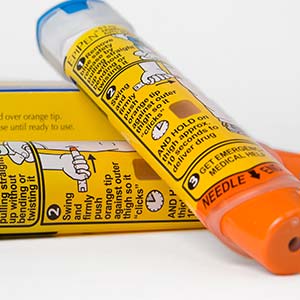A surprising clue to your blood pressure: it’s in your eyes
Whenever you visit the doctor, it’s likely that you’ll be asked to roll up your sleeve to have your blood pressure checked. It’s a simple and effective way to monitor cardiovascular health.
But what you may not know is that there’s another routine that can help doctors check your blood pressure. It's your annual eye exam. By viewing the blood vessels in the retinas of your eyes, your eye doctor can look for early signs of high blood pressure, also known as hypertension.
The importance of detecting “the silent disease”
Because many with this condition lack symptoms, high blood pressure has been called the “silent disease.” According to the American Heart Association, it affects 76.4 million adults in the United States.(1) Yet more than one in five people don’t even know they have it.(2) Because high blood pressure can affect so many vital parts of the body, including the arteries, veins, heart, brain, and kidneys, early detection and treatment are especially important.
How high blood pressure can affect your vision
Blood vessels carry blood not only to and from your heart but also to your eyes. Due to their enormous demand for oxygen, tiny blood vessels above and below the eyes’ retinas can be easily damaged by high blood pressure. During a comprehensive eye examination, your eye doctor checks for the many subtle changes high blood pressure causes to the retina. This condition is known as hypertensive retinopathy. Obstruction of the veins and arteries in the retina can be temporary or permanent.
High blood pressure is also linked to choroidopathy, which occurs when fluid builds up under the retina. The most common symptom of choroidopathy is distorted vision.
Optic neuropathy is another vision condition related to high blood pressure. It can be caused by blood flow blockage. The lack of blood supply can cause nerve damage resulting in the death of the receptor cells in the retina, creating vision loss and/or blindness.
Take care of your heart and your eyes
By maintaining a healthy lifestyle, you can help avoid risk factors that may affect heart health and vision.
- Exercise regularly
- Maintain a proper weight
- Eat a heart-healthy diet rich in omega-3 fatty acids, antioxidants, and soluble fiber
Consult your medical doctor before starting an exercise or diet program. If you detect any changes in your eye health that may indicate high blood pressure, your eye doctor can work with your primary care doctor to ensure you receive appropriate and timely treatment.
Don’t forget to see your eye care professional for regular eye exams. You’ll be helping your eyes and your heart.
1. “About High Blood Pressure,” American Heart Association, http://www.heart.org/HEARTORG/Conditions/HighBloodPressure/AboutHighBloodPressure/About-High-Blood-Pressure_UCM_002050_Article.jsp.
2. Lloyd-Jones D, Adams RJ, Brown TM, et al., Heart Disease and Stroke Statistics-2010 Update, A Report from the American Heart Association Statistics Committee and Stroke Statistics Subcommittee, Circulation, 2010, 121:e1-e170.





